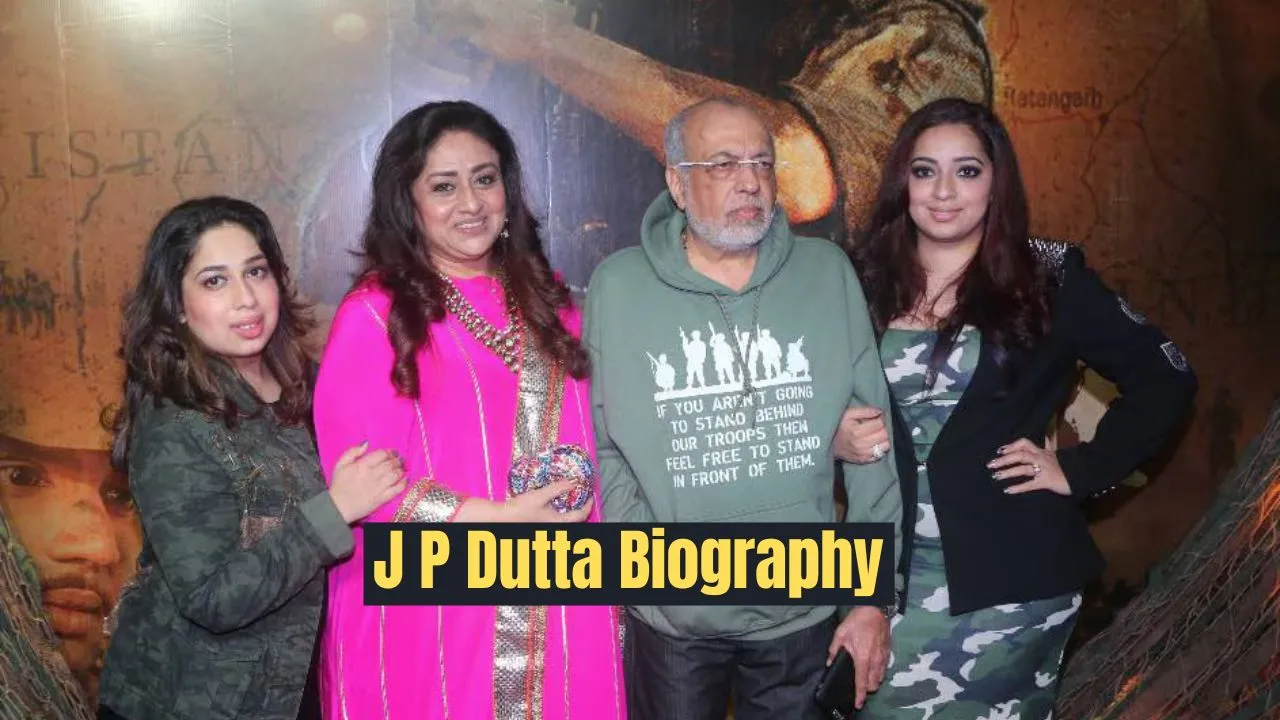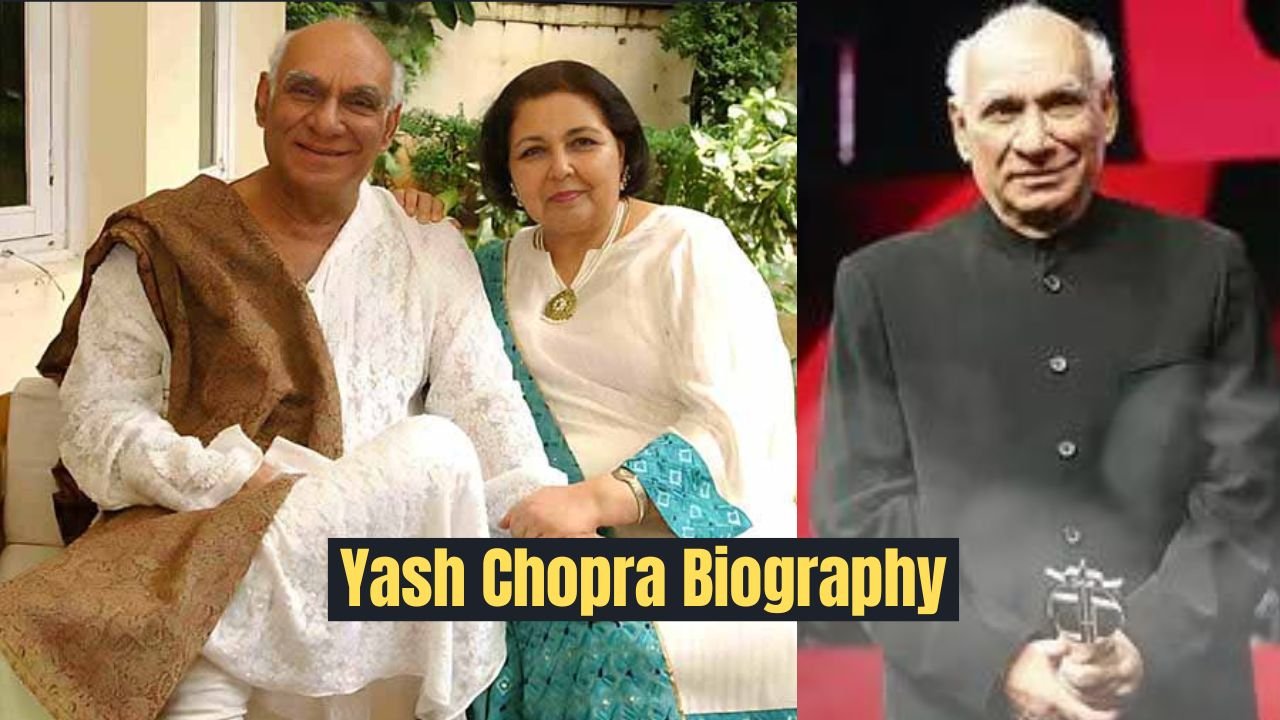J.P. Dutta Biography: In the tapestry of Bollywood’s history, there are a few names that stand out for their dedication to storytelling, their commitment to excellence, and their ability to transport audiences into worlds both real and imagined. J.P. Dutta, the master craftsman behind some of Indian cinema’s most iconic war dramas, is undoubtedly one of those luminaries whose work has left an indelible mark on the landscape of Hindi cinema. From epic battles to poignant human stories, Dutta’s films have captivated audiences with their grandeur, emotion, and cinematic brilliance.
J.P. Dutta Biography
Early Life and Career Beginnings:
Born on October 3, 1949, in Mumbai, J.P. Dutta was destined to follow in the footsteps of his father, O.P. Dutta, a renowned filmmaker in his own right. Growing up surrounded by the glitz and glamour of the film industry, Dutta developed a passion for storytelling from a young age. After completing his education, he embarked on his journey into the world of cinema, eager to carve out a niche for himself as a filmmaker.
Dutta’s early years in the industry were marked by struggles and setbacks, typical of aspiring filmmakers trying to make their mark in the fiercely competitive world of Bollywood. He started his career as an assistant director, learning the ropes of filmmaking from veterans of the industry. It was during this time that he honed his skills, gained invaluable experience, and laid the groundwork for his future success as a director.
Rise to Prominence:
J.P. Dutta’s directorial debut came in 1984 with the film “Ghulami,” a gritty drama set in the backdrop of rural India. The film, starring Dharmendra and Mithun Chakraborty, was well-received by audiences and critics alike, establishing Dutta as a promising new talent in the industry. However, it was his subsequent forays into the war genre that would cement his reputation as a master storyteller and visionary filmmaker.
In 1997, Dutta released “Border,” a sprawling epic based on the Battle of Longewala during the Indo-Pakistani War of 1971. The film, which boasted an ensemble cast including Sunny Deol, Suniel Shetty, and Akshaye Khanna, struck a chord with audiences with its patriotic fervor, breathtaking action sequences, and heartfelt performances. “Border” became a massive box office success and catapulted Dutta to superstardom, earning him widespread acclaim and accolades from all quarters.
The Era of War Dramas:
Buoyed by the success of “Border,” J.P. Dutta continued to explore the theme of war in his subsequent films, creating a trilogy of epic war dramas that would define his legacy as a filmmaker. Films like “LOC Kargil” (2003) and “Paltan” (2018) showcased Dutta’s mastery over the genre, combining breathtaking action with poignant human stories to create cinematic experiences that were both thrilling and emotionally resonant.
Dutta’s films were celebrated for their attention to detail, historical accuracy, and authentic portrayal of military life. From the camaraderie among soldiers to the sacrifices they make for their country, Dutta captured the essence of war with a realism and depth that resonated with audiences. His ability to weave together multiple narratives and characters within the larger tapestry of war set him apart as a storyteller par excellence.
Controversies and Challenges:
Despite his stellar track record, J.P. Dutta was not immune to controversy and challenges throughout his career. In 1999, his film “Border” faced criticism from certain quarters for its portrayal of the Pakistani Army. Some accused Dutta of glorifying war and perpetuating stereotypes, while others questioned the historical accuracy of certain events depicted in the film. However, Dutta defended his creative choices, stating that his intention was not to glorify war but to pay tribute to the courage and sacrifice of Indian soldiers.
In addition to controversy, Dutta also faced financial challenges and production woes on several occasions. Films like “Refugee” (2000) and “Umrao Jaan” (2006) struggled at the box office, failing to recoup their massive production costs. However, Dutta remained undeterred by these setbacks, continuing to pursue his passion for storytelling with unwavering determination and resilience.
Awards and Accolades:
J.P. Dutta’s contributions to Indian cinema have been recognized with numerous awards and accolades throughout his illustrious career. “Border” earned him several prestigious awards, including the National Film Award for Best Feature Film on National Integration and the Filmfare Award for Best Director. Dutta’s films have also been honored at international film festivals, showcasing the universal appeal and impact of his work.
In 2018, Dutta was honored with the Dadasaheb Phalke Excellence Award for his outstanding contribution to Indian cinema. The award, named after the father of Indian cinema, recognized Dutta’s unparalleled vision, creativity, and dedication to his craft. It was a fitting tribute to a filmmaker whose films have not only entertained audiences but also inspired generations with their powerful storytelling and timeless themes.
Legacy:
As we reflect on the illustrious career of J.P. Dutta, it becomes evident that his legacy extends far beyond the confines of the silver screen. He is not just a filmmaker but a storyteller who has touched the hearts and minds of millions with his epic tales of courage, sacrifice, and patriotism. His films serve as a reminder of the resilience of the human spirit and the power of cinema to transcend boundaries and unite audiences in a shared experience.
As we celebrate J.P. Dutta’s contributions to Indian cinema, let us remember him as a visionary whose films will continue to inspire and resonate with audiences for generations to come. His dedication to his craft, his commitment to excellence, and his unwavering passion for storytelling have left an indelible mark on the fabric of Hindi cinema, ensuring that his legacy will endure long after the credits have rolled.

